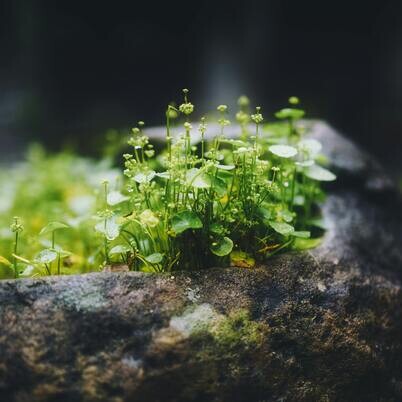Herbs, Small but Mighty, Where Did it Start?
Herbal Medicine, also known as Phytotherapy, Botanotherapy, or Botanical Medicine, involves utilising plants for their therapeutic properties and boasts a long and esteemed history as the oldest form of healthcare recognized by humanity.
A herb is a plant valued for its medicinal, aromatic, or savoury attributes. Herbalists harness the leaves, stems, flowers, roots, bark, and berries of a wide array of plants to prevent and treat ailments.
The practice of Herbalism can be traced back to ancient times when humankind thrived by relying on plants for sustenance, clothing, shelter, and medicine. The exact origins of using herbs for medicinal purposes remain uncertain, but archaeological evidence from early civilizations indicates the utilisation of plants in burials and rituals. Observation of animals using self selection to aid health and sickness, is likely to have played key roles in the development of herbal remedies that we still use today.
Health Benefits of Herbs:
Medicinal properties: Many herbs contain concentrated bioactive compounds like antioxidants, anti-inflammatory, and antimicrobial. These properties have been used for centuries in traditional medicine and are increasingly supported by scientific research. Herbs like turmeric, ginger, garlic, and echinacea can help manage various health conditions, from digestion issues to inflammation.
Nutritional value: Herbs are often packed with vitamins, minerals, and antioxidants, adding vital nutrients to our diet.
Culinary Impact:
Flavour and aroma: Herbs can transform bland dishes into culinary masterpieces. Their diverse flavour profiles, from citrusy to earthy to minty, enhance the taste and complexity of food.
Preservation: Some herbs like rosemary and thyme have natural antimicrobial properties that help preserve food by slowing down spoilage.
Cultural Significance:
Symbolism and tradition: Different herbs hold symbolic meanings and have been used in religious ceremonies, cultural practices, and folklore for centuries.
Spiritual and emotional connection: The act of growing, harvesting, and using herbs can foster a connection with nature and provide a sense of wellbeing.
Overall, herbs can be powerful additions to all our lives, offering health benefits, culinary delights, and cultural significance. It's best to approach them with respect, knowledge, and appreciation for their multifaceted strengths. Having trained as an applied herbal choices consultant, my love and passion for knowledge and herbs has grown to help build River & Wren. I want to share my passion and love of herbs with the whole family, and will continue to create safe, yet effective blends that the whole family can enjoy.
